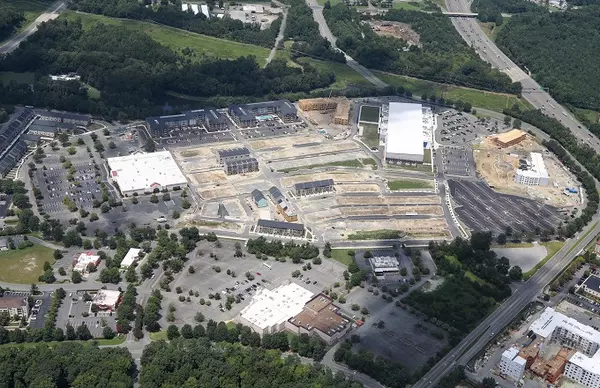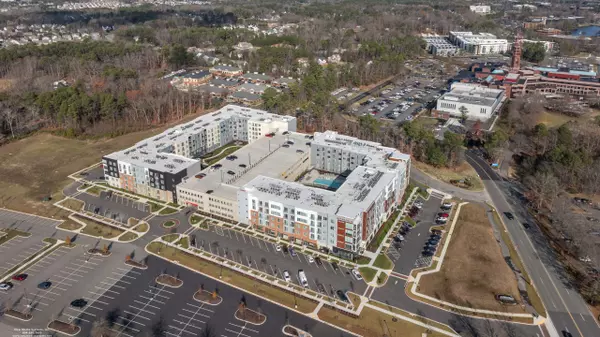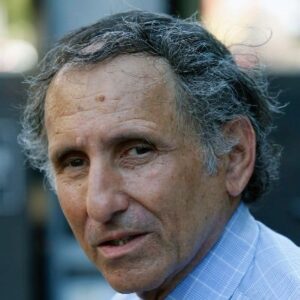City won’t meet Diamond District incentive deadline, plans to lobby G.A. for missed $24M

A rendering of the new stadium planned along Arthur Ashe Boulevard south of The Diamond. (BizSense file)
The City of Richmond says it will miss its chance at $24 million in expiring state sales tax incentives that it planned to use to help finance the Diamond District development – and it’s placing blame for losing out on the money squarely on a recent lawsuit.
But Chief Administrative Officer Lincoln Saunders said he’s optimistic that the funds could be recaptured through lobbying of state legislators to reinstate the incentive program in next year’s General Assembly session.
Saunders said this week that the city’s hands are tied from being able to advertise and sell the bonds for a new baseball stadium in time for the program’s June 30 deadline. That’s due to the still-lingering appeal period stemming from the lawsuit filed by Paul Goldman that challenged the city’s ballpark financing pivot.
While that lawsuit was dismissed June 7, Saunders said that so long as Goldman’s appeal window remained open, the city was advised that it could not go forward with issuing the stadium bonds.
“Based on our bond counsel’s advice, we are not going to be able to legally advertise and sell the bonds while the lawsuit is still subject to appeal,” Saunders said.
The city’s bond counsel is Richmond-based Davenport & Co.
“It was certainly our hope and intention to be able to sell the bonds for the stadium by mid-June so that we could be guaranteed to take full advantage of the sales tax recapture, but the lawsuit has definitely jeopardized that as well as the potential savings,” Saunders said.
Goldman, however, said his lawsuit is not to blame for the city missing the deadline. He argued that the city could have started the process long before now and questioned whether it even could have secured bonds with a 4 percent interest rate as it said it could. Goldman also suggested the stadium bonds would be taxable and therefore require a higher interest rate.
“The 4 percent is the tax-exempt rate. The stadium bonds are going to be taxable bonds,” Goldman said. “You can’t block something that nobody could do. If you can’t do that, I’m not delaying anything.”
Goldman reiterated his belief that city voters should get to weigh in on the $170 million Diamond District bond issuance via a referendum, which state law requires of counties but not cities. A referendum was the ultimate goal of his lawsuit.
“Why am I such a bad guy because I want to exercise my constitutional rights? It’s not on me. I’m offended that people think that because I exercised my First Amendment rights that I’m at fault. I should have just let it happen?”
State law allows Goldman 15 calendar days from the date his lawsuit was dismissed to file a notice of appeal. The dismissal order was recorded in Richmond Circuit Court on June 14, putting the end of the 15-day window on June 29. Goldman had yet to file an appeal as of Tuesday.
But for the lawsuit and the appeal window it triggered, Saunders said the city would have been able to issue the $130 million in stadium bonds in time to meet the June 30 deadline and capture the $24 million in incentives. He said the city’s ability to do so is proven by its scheduled closing this week of a separate $40 million bond issuance for infrastructure improvements for the larger Diamond District development.
Saunders said the city was able to sell the infrastructure bonds with an interest rate below 4 percent, the rate that it expected to secure by issuing its own bonds instead of its previous plan of having them issued through a newly formed community development authority.
That change in financing approach was projected to save the city $215 million in debt costs over the 30-year length of the debt, but also means the city assumes the risk on the $170 million in bonds. That puts it on the hook for repaying them if the stadium isn’t built or the larger development doesn’t pay for itself through incremental tax revenue.
Saunders said the loss of the $24 million in state sales tax incentives cuts into those savings but does not jeopardize the stadium or the project overall. He said the project remains scheduled to break ground next month and deliver the stadium in time for the targeted 2026 baseball season.
“It doesn’t change our ability to deliver the stadium on time as long as we are moving forward with the infrastructure and starting that work. The delay singularly impacts just the state sales tax conversation,” Saunders said.
“This $24 million essentially will reduce our savings from our financing plan. It doesn’t require the city to put in more funding; it just would have been funds that otherwise were going to the state that would have been used to pay down our bonds faster.”
Saunders said the city is hopeful that the $24 million can be applied to the project retroactively through a reinstatement of the incentive program. The program was removed from the General Assembly’s budget this year as opponents sought to block funding for a controversial arena-anchored project in Alexandria that was championed by Gov. Glenn Youngkin.
Saunders said the city will lobby legislators to reinstate the program in next year’s session with language that could put the $24 million toward the Diamond District.
“We’re optimistic that a program that has for a long time existed in the state to support improvement projects like this” could be reinstated, Saunders said. “I think it’s a very good chance they bring it back when it’s no longer caught up in the Northern Virginia debate about the arena.
“If the General Assembly sees fit to reinstate the program, I would think that we would be able to make a strong case that the city’s project should qualify,” he said. “We’re years away from the taxes being generated related to the site, so if we can get the General Assembly to reinstate it, we should be able to get that full $24 million that was projected from the state sales tax.”
Noting the infrastructure bonds are set to close before July 1, Saunders added, “We believe that will give us a further case to make that we should be able to participate in the full state sales tax capture.”
The deadline miss had been announced two weeks earlier at a June 12 constituent meeting for the Second District, where the Diamond District is located. Deputy Chief Administrative Officer Sharon Ebert told attendees that the city would miss the deadline due to the appeal window, but then walked back those comments following the meeting after receiving a call from Saunders.
Ebert said she was told that the 15-day window would still allow enough time for the city to issue the bonds. Saunders this week attributed the back-and-forth to a lack of clarity on the dismissal judgment’s recording date and how that affected the start of the appeal window.
Site work on the ballpark cannot start until development and lease agreements are signed between the city’s Economic Development Authority board and Navigators Baseball LP, the ownership group of the Richmond Flying Squirrels. Saunders said those agreements could be finalized in a matter of days. The EDA has a board meeting scheduled Thursday.
The post City won’t meet Diamond District incentive deadline, plans to lobby G.A. for missed $24M appeared first on Richmond BizSense.
Recent Posts










GET MORE INFORMATION
Agent | License ID: 0225209440




